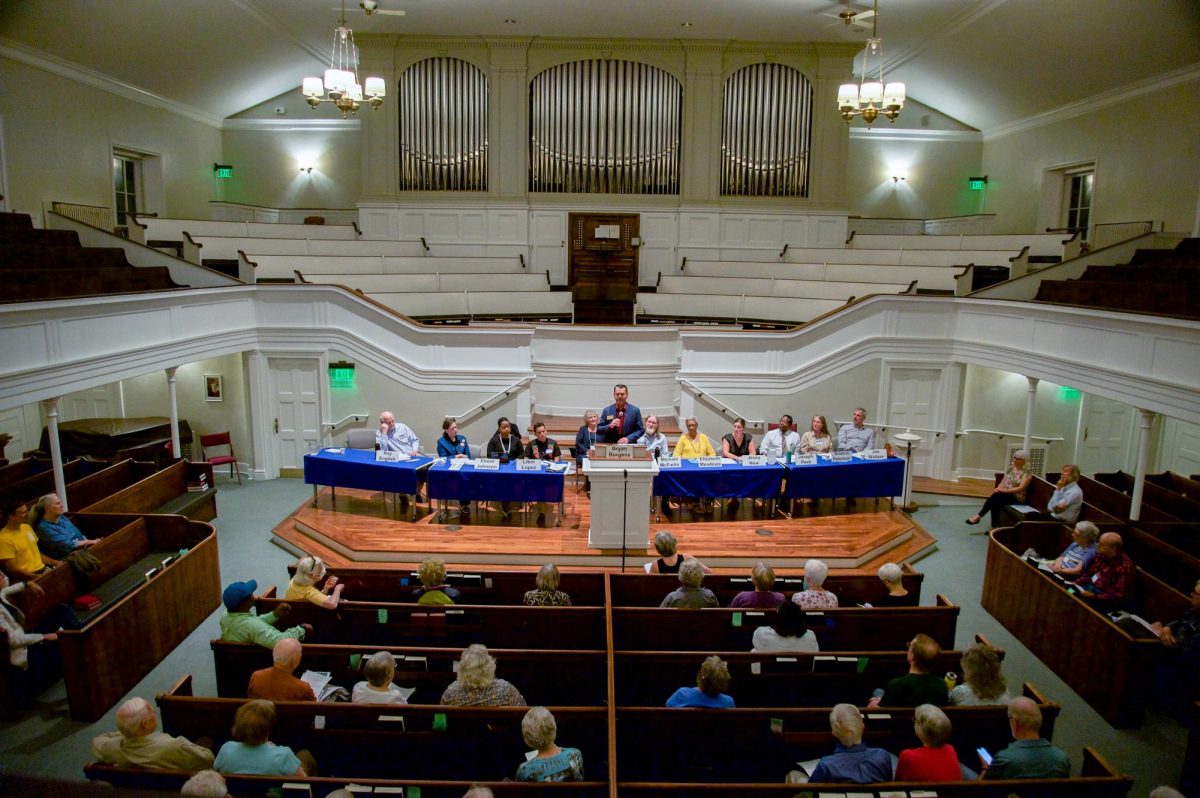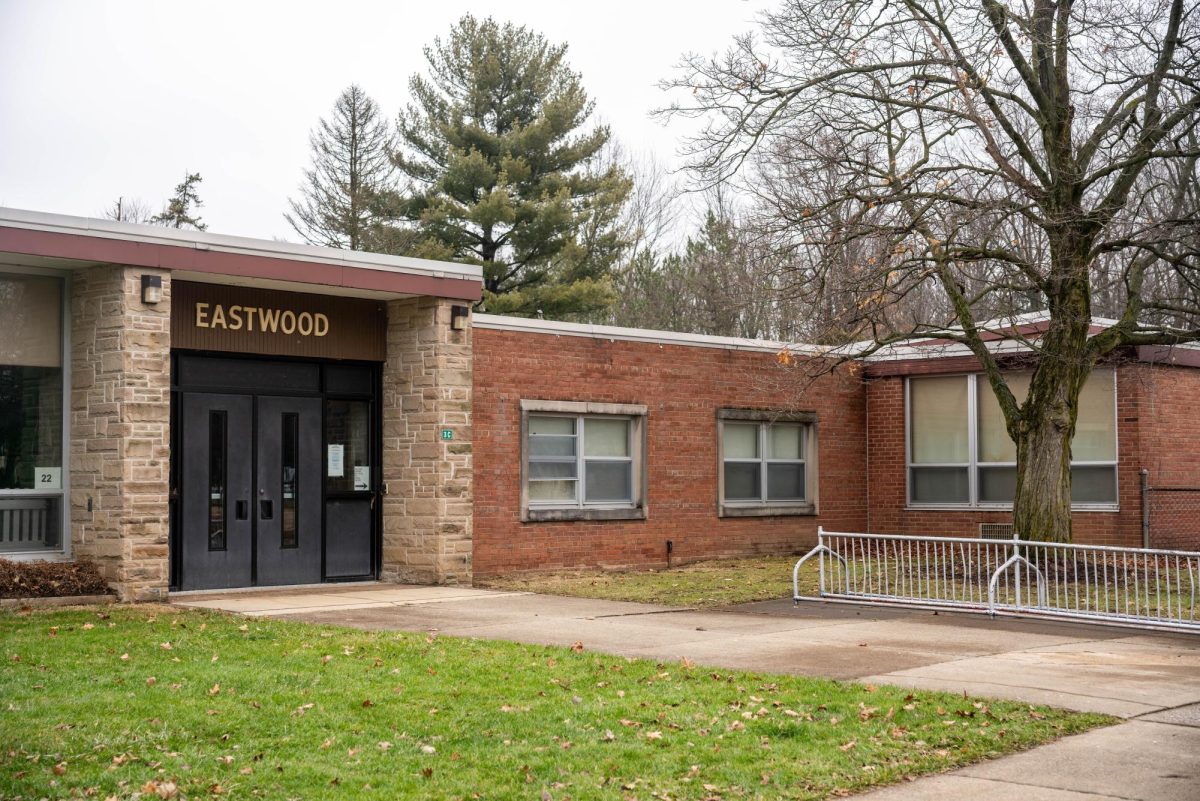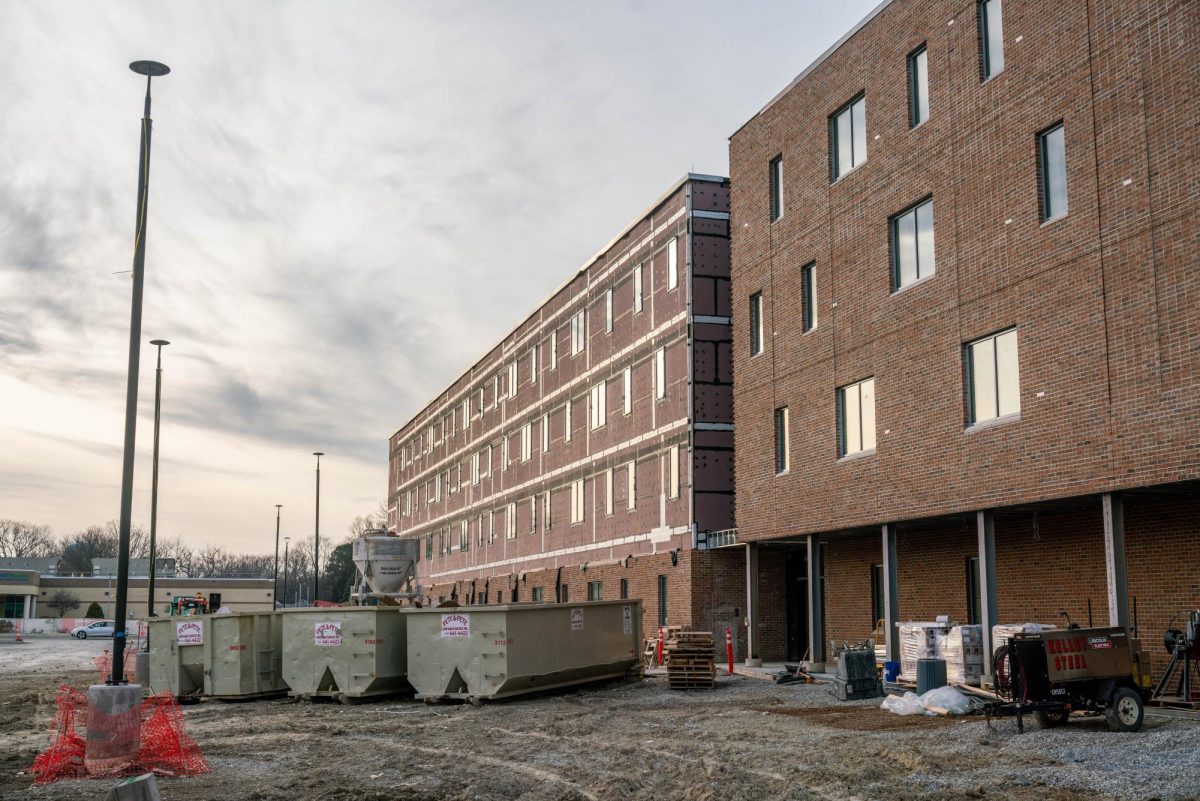On Tuesday night, 11 City Council candidates met with voters at the First Church in Oberlin, United Church of Christ for Community Candidates Night.
In previous years, Candidates Night has been held online due to COVID-19. 2023 marks the first in-person City Council Candidates event since 2019.
The Oberlin Community Candidates Night is organized by a nonpartisan coalition of groups including the Oberlin Business Partnership, Kendal at Oberlin, the Oberlin Unitarian Universalist Fellowship Social Justice Team, and the Lorain County Chapter of Citizens’ Climate Lobby.
Six City Council members are incumbents: Bryan Burgess, Ray English, Eboni A. Johnson, OC ’97, Michael McFarlin, Elizabeth J. Meadows, and Kristin L. Peterson, OC ’72. The five other candidates are Frieda Fuchs, Libni Lopez, Jessa New, OC ’01, Joseph L. Peek, and Joe Waltzer, OC ’98.
The event mostly consisted of community members; few students were in attendance.
“One of the reasons we decided to have the event at First Church is because we are hoping students will come because it’s close and easy,” League of Women Voters member Linda Slocum said. “But I realized it’s rather a long program.”
In addition to opening and closing statements, the discussion format allowed prewritten questions from the League of Women Voters and questions sent in by community members.
“Some of the candidates felt like there wasn’t enough time because there were so many of them,” League of Women Voters member Alison Ricker said. “They were limited in how much time they could answer questions, but overall, people felt it was very worthwhile.”
Community members took time to ask candidates about their plans to address the lack of housing in Oberlin.
“Housing was discussed so much because there is more demand for housing than there is housing available at every income level,” Peterson said. “For housing, it’s important to get infill lots built, getting proposed housing developments in different parts of town where we have the land, and hopefully we will get developers and get houses built.”
Currently, the median monthly gross rent in Oberlin is $726 and the median monthly owner cost with a mortgage is $1,256.
“I wish we had addressed more of this issue earlier, like years or decades ago,” Johnson said. “It’s important to address this issue now so 20 or 30 years from now, we’re not dealing with this.”
Another aspect of housing addressed was safety in rental properties. Incumbent Ray English spoke to the Review concerning landlords not being responsible for notices of safety code violations.
“I would like to see the City institute a formal requirement for registration of landlords and rental properties with appropriate fines for noncompliance,” English said. “There should also be a requirement for out-of-state landlords to register a local person who can be contacted in urgent situations. We also need to find additional ways to convey to tenants that they can report safety concerns to our code administrator.”
Another topic addressed was Oberlin’s Comprehensive Plan, a community-driven project with the purpose of defining goals for the City’s future. The City of Oberlin describes it as “an opportunity to prioritize development and land-use patterns, identify important and potentially transformative projects, and align resources to address growth and improve a community’s quality of life.”
Three candidates have been a part of the Comprehensive Plan: English, McFarlin, and New.
“I love that it talks about all different facets of the community — it’s already resulted in a social equity coordinator,” New said. “We need an economic development coordinator very badly so there’s proper communication and a proper liaison between the businesses and the City.”
In his opening and closing statements, Lopez was the sole candidate to bring up immigration in Oberlin.
“I will try to bridge the gap between community members and business owners by connecting them with resources,” Lopez said. “I have observed a genuine willingness from residents to extend support, but there is lack of familiarity with available resources and no one to turn to. I believe in having a centralized location in Oberlin where organizations like Oberlin Community Supporting Immigrants can have a designated hub.”
Residents also asked questions concerning the future of the Eastwood School Property, owned by the Oberlin City Schools.
“The City does not have a direct say in how Oberlin City Schools dispenses its property, but it does have an interest in making sure that the quality of life in the neighborhood remains intact,” McFarlin wrote in an email to the Review. “My hopes are that the schools find a solution that makes an acceptable use of the existing building rather than letting it remain vacant. In any case, the future of the Eastwood property should be in line with the social equity and environmental sustainability goals of Oberlin.”
President of the League of Women Voters of the Oberlin Area Deb Cocco discussed the importance of the event and its impact upon attendees.
“We put on this event to educate voters about their decision making and what’s coming up,” Cocco explained. “I thought tonight went really well, and people got a good impression of who the candidates are.”








